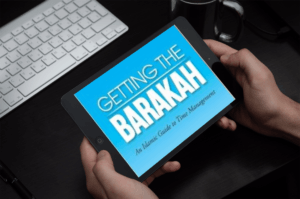Reading often is one of the best habits you can develop. By reading a book a month, you can increase your knowledge at a much faster pace than most people. Reading gives you an edge over those who don’t read.
But not everybody who reads books gets a lot of knowledge out of their books.
For some people, by the time they have finished reading one book, they have forgotten the content of the book they read before that. If you want to avoid falling into this trap, pay attention to the following advice.
1. Have a goal for each book
Before reading any book ask yourself ‘what do I want to get out of this book’ and work towards that goal while reading the book. For example, when you decide to read ‘Getting The Barakah‘ do so with the intention of mastering time management. This will be much more beneficial than just reading it for fun or to just get it over with.
Once you have a goal, you can now focus on trying to achieve that goal. You can put systems in place to measure how close you are to achieving that goal, and to follow up on whether you were able to achieve the goal after finishing the book.
More examples of goal setting when reading a book:
1. I am reading this Tafsir book to get a better understanding of the Quran.
2. I am reading this money management book so that I can become more financially mature.
3. I am reading this fiction book to stimulate my imagination and help me think of new ideas.
2. Engage with the book
This may sound like a weird idea, but it works really well. Every time you come across an important passage in the book that you find hard to understand, take the time to engage with the book. Repeat what you read out loud. Ask questions about what you read out loud. Write down the point in your own words. Engage with the book as if it is a dialogue and you will find yourself benefiting a lot more from reading that book.
For example: If you read a passage explaining a new system of time management, repeat the system out loud by saying, “So what the author is saying is…” If you can complete that sentence in your own words, it means that you have understood the passage well.
If the book is teaching a practical skill like writing or marketing, then take breaks from reading to practice. So you can read for 30 minutes, then practice for 30 minutes in order to make sure you are actually learning the skill.
3. Summarize the book
After completing the book, take some time to write a paragraph or page summarize the core message of the book in your own words. This will help you remember the message of the book long after you have completed reading it. And if you ever forget, you can just read the summary you wrote.
Writing a summary will also help you check whether you truly understood the book or not. If you can recap anything in your own words, it usually means you understood it well. If the book is really dense, then consider writing a summary of every chapter as well.
4. Recommend the book to a friend
If you found a book beneficial, then tell your friends and family about it. After all, if a book is beneficial, it deserves to be read by as many people as possible. But how would this help you remember the book better. Because when recommending the book to someone, you will need to recap the core lessons you learned from that book in order to sell them on it. This serves as a form of revision to further cement the topic in your head.
Are you ready to start reading more beneficial books? Then check out our eBook bundle for the perfect starting package.




Good read ma sha Allah